
As an important non-metallic mineral resource, fluorite ore is widely used in chemical, metallurgical, optical and other industries. According to the different mineral compositions and associated minerals, fluorite can be divided into many types, including single type, quartz type, calcite type, barite type and sulfide type. Due to the differences in mineral properties, each type of fluorite has its own characteristics in beneficiation. Effective beneficiation technology can not only improve the recovery rate and purity of fluorite, but also reduce production costs and enhance the economic value of the ore. This article will introduce in detail the beneficiation methods and key technologies of different types of fluorite ores, in order to provide a reference for the efficient purification of fluorite ore.
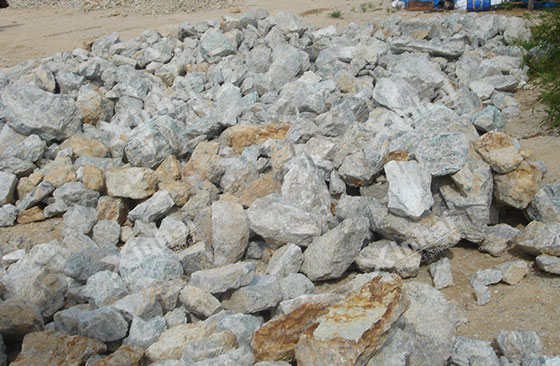
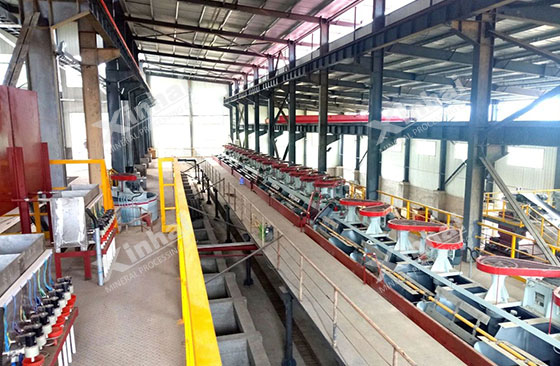
Single-type fluorite ore is mainly composed of pure fluorite minerals, with fewer associated minerals. Due to the single nature of the mineral, the beneficiation process is relatively simple, and physical beneficiation methods such as gravity separation or direct flotation are mainly used. Gravity separation is mainly suitable for ores with large particle sizes and large density differences between fluorite minerals and other gangue minerals. Fluorite minerals are purified by using gravity separation equipment such as vibrating screens and shaking tables. Flotation is mainly used to process fluorite ores with finer particle sizes and more impurities. In the flotation process, fatty acid collector oleic acid is used to collect fluorite ores. The types of regulators used in the flotation process are sodium carbonate and water glass, which can further improve the separation effect of fluorite and impurities.
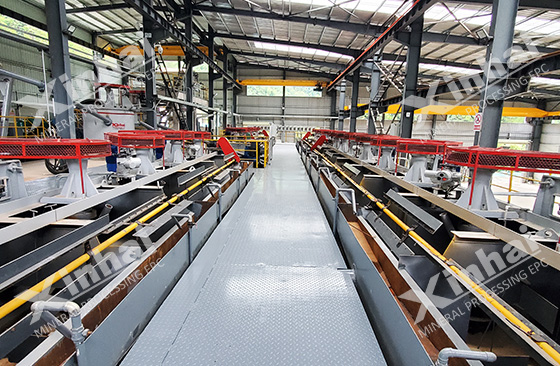
Quartz-type fluorite ore is mainly composed of fluorite and quartz, with a small amount of calcite, barite and sulfide. The key to the beneficiation of this type of ore is the separation of fluorite and quartz, which is generally carried out by flotation. In addition, grinding is also an important factor affecting its flotation. There are two flotation methods for quartz-type fluorite: positive flotation of fluorite ore and reverse flotation of quartz ore.
When positively flotating fluorite ore, fatty acid collectors are added to the pulp to selectively make the fluorite particles hydrophobic, and the quartz particles float to the surface with bubbles, and the quartz particles are suppressed and exist in the pulp. Reverse flotation of quartz ore is to suppress fluorite with an inhibitor first, so that quartz floats out first. No matter which flotation method is chosen, it is necessary to optimize the dosage of beneficiation reagents and the pH value of the pulp according to the properties of the ore, thereby improving the recovery rate of fluorite ore and the grade of concentrate.
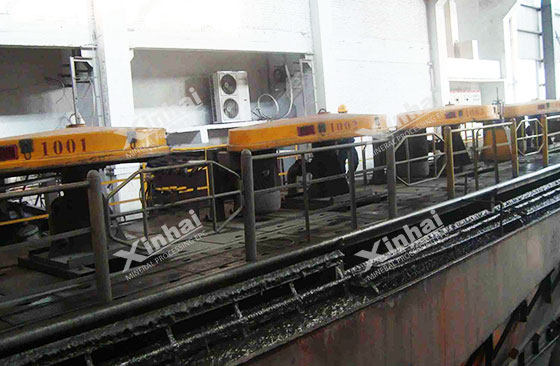
The main associated mineral of this type of fluorite ore is calcite, and it also contains a small amount of quartz. Since fluorite and calcite are both calcium-containing minerals with similar chemical properties, it will cause difficulty in beneficiation. However, in the flotation process, by adjusting the pH value of the pulp and adding inhibitors to inhibit the flotation of calcite, the fluorite ore can be effectively floated out. The inhibitors used in calcite-type fluorite ore mainly include water glass, sodium hexametaphosphate, lignin sulfonate, dextrin, tannin, tannin extract, etc. At the same time, the flotation of fluorite ore also requires the addition of fatty acid collectors such as oleic acid to accelerate the floating of fluorite ore.
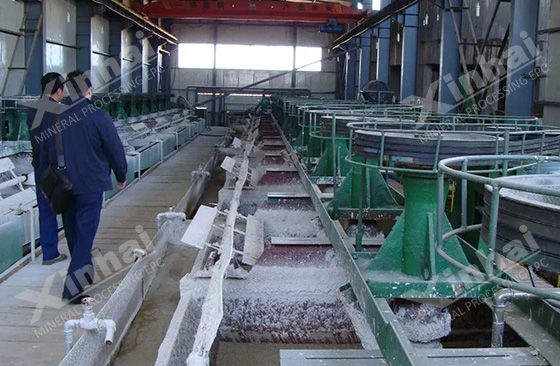
Barite accounts for more than 10% of the barite in barite type fluorite ore, and is also associated with pyrite, galena, sphalerite and other sulfide minerals. The floatability of barite is similar to that of fluorite ore, which makes the separation of the two difficult. For the separation of this type of ore, mixed flotation treatment is generally used. Sodium carbonate is added to the pulp to adjust the pH value of the pulp. Oleic acid and water glass are used as collectors to obtain a mixed concentrate of fluorite and barite, and then the mixed concentrate is separated by re-floatation. During the separation process, by adjusting the dosage and type of flotation reagents, fluorite and barite can be effectively separated and the purity and recovery rate of the two concentrates can be ensured.
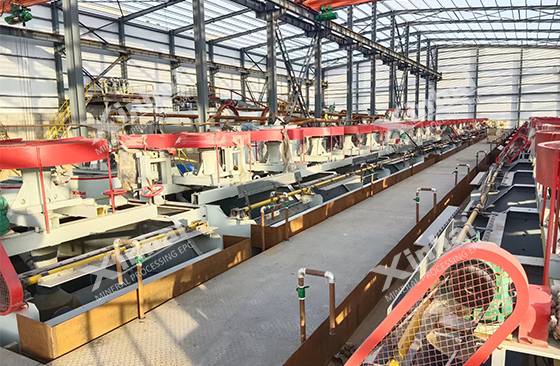
Sulfide ore type fluorite minerals contain high levels of metal sulfides, and the content of metals such as lead and zinc can sometimes reach industrial grade. Therefore, when processing this type of fluorite, it is also necessary to consider the recovery of other metal ores. The treatment of this type of ore first uses sulfide ore collectors to preferentially select metal sulfide minerals, and then uses fatty acid collectors to recover fluorite from flotation tailings. For sulfide ore type fluorite ore beneficiation, roasting and leaching processes can also be used to extract valuable metals and decompose fluorite minerals.
The above is a brief description of the beneficiation methods and reagents for five types of fluorite ores. Currently, the commonly used methods for fluorite ore purification include hand selection, gravity selection and flotation, among which flotation is the most commonly used method. Reasonable process design and selection of beneficiation equipment based on the properties of fluorite ores and beneficiation requirements can greatly improve the utilization rate of various elements in fluorite ores.
To find out more about our products and solutions, please fill out the form below and one of our experts will get back to you shortly.